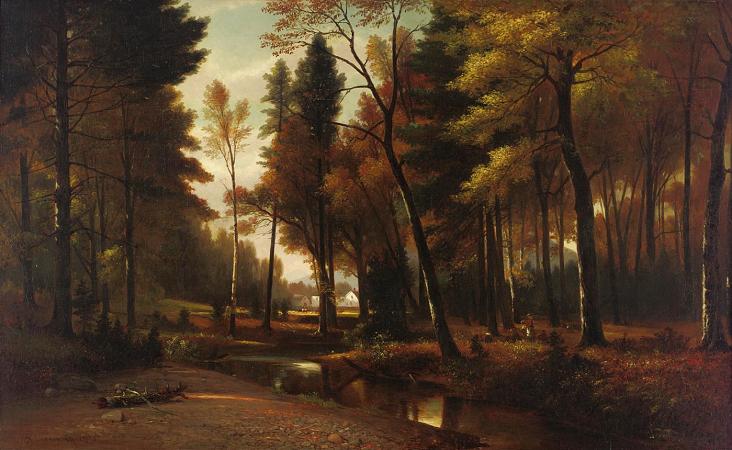Picnic. A picnic is a meal taken outdoors as part of an excursion, especially in scenic surroundings, such as a park, lakeside, or other place affording an interesting view, or else in conjunction with a public event such as preceding an open-air theater performance, and usually in summer. It is different from other meals because it requires free time to leave home. History shows us that the idea of a meal that was jointly contributed to and enjoyed out-of-doors was essential to picnic from the early 19th century. Picnickers like to sit on the ground on a rug or blanket. Picnics can be informal with throwaway plates or formal with silver cutlery and crystal wine glasses. Tables and chairs may be used but this is less common. Outdoor games or some other form of entertainment are common at large picnics. In public parks, a picnic area generally includes picnic tables and possibly built-in grills, water faucets, garbage containers and restrooms. Some picnics are a potluck, where each person contributes a dish for all to share. The food eaten is rarely hot, instead taking the form of deli sandwiches, finger food, fresh fruit, salad and cold meats. It can be accompanied by chilled wine, champagne or soft drinks. The etymology is contested. The Oxford English Dictionary says picnic is Perhaps of multiple origins. A borrowing from French. Perhaps also partly a borrowing from German. The earliest English citation is in 1748, from Lord Chesterfield who associates a pic-nic with card-playing, drinking, and conversation; around 1800, Cornelia Knight spelled the word as pique-nique in describing her travels in France. According to some dictionaries, the French word pique-nique is based on the verb piquer, which means pick, peck, or nab, and the rhyming addition nique, which means thing of little importance, bagatelle, trifle. It first appears in 1649 in an anonymous broadside of burlesque verse called Les Charmans effects des barricades: ou l'Amitié durable de la compagnie des Frères bachiques de pique-nique : en vers burlesque. The satire describes Brother Pique-Nique who, during the civil war known as the Fronde, attacks his food with gusto instead of his enemies; Bacchus was the Roman god of wine, a reference to the drunken antics of the gourmand musketeers. By 1694 the word was listed in Gilles Ménage's Dictionnaire etymologique de la langue francaise, with the meaning of a shared meal, with each guest paying for himself, but with no reference to eating outdoors. It reached the Dictionnaire de l'Académie française in 1840 with the same meaning. In English, picnic only began to refer to an outdoor meal at the beginning of the 19th century. The practice of an elegant meal eaten out-of-doors, rather than an agricultural worker's mid-day meal in a field, was connected with respite from hunting from the Middle Ages; the excuse for the pleasurable outing of 1723 in François Lemoyne's painting is still offered in the context of a hunt. In it a white cloth can be seen, and on it wine, bread and roast chicken. While these outdoors meals could be called picnics there are, according to Levy, reasons not to do so. The English, he claims, left the hunter's meal unnamed until after 1806, when they began calling almost any alfresco meal a picnic. The French, Levy goes on to say, refrained from calling anything outdoors a pique-nique until the English virtually made the word their own, and only afterwards did they acknowledge that a picnic might be enjoyed outdoors instead of indoors. The French Revolution popularized the picnic across the world. French aristocrats fled to other Western countries, bringing their picnicking traditions with them. In 1802, a fashionable group of over 200 aristocratic Londoners formed the Pic Nic Society. The members were Francophiles, or may have been French, who flaunted their love for all things French when the wars with France lulled between 1801 and 1830. Food historian Polly Russell however suggests that the Pic Nic Society lasted until 1850. The group's intent was to offer theatrical entertainments and lavish meals followed by gambling. Members met in hired rooms in Tottenham Street. There was no kitchen so all food had to be made elsewhere. Each member was expected to provide a share of the entertainment and of the refreshments, with no one particular host.
more...






